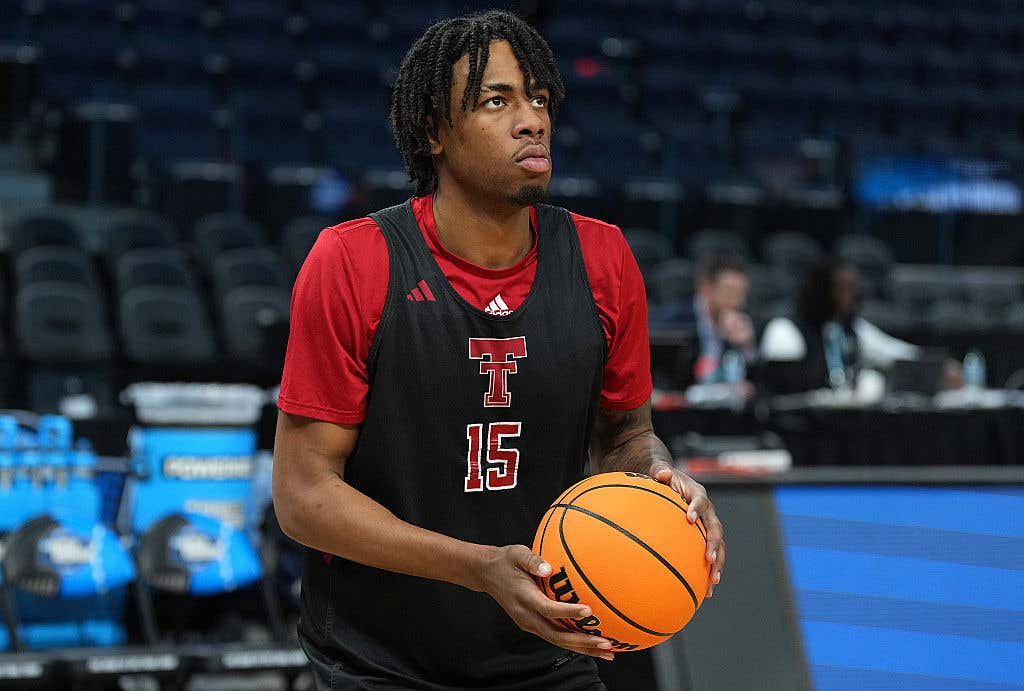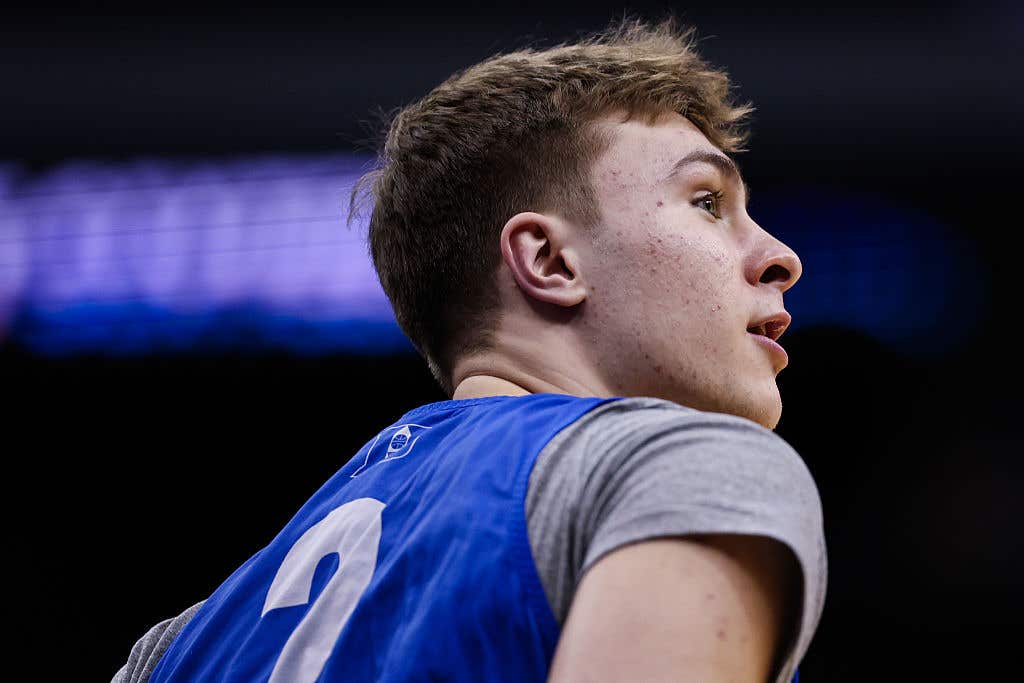
"You break it, you own it," the Nike slogan has read for a few weeks now. It features one of the most inspiring athletes of this generation, sporting the number 22, and with arms raised in the air. Yesterday, Caitlin Clark broke the all-time NCAA college basketball scoring record. However, this accomplishment is much more than that. The ripple effect this of this Iowa stars accomplishments is beautifully taking over the sports world.
When Clark nailed that logo three-pointer in mid-February to grab the all-time NCAA women's scoring record, she did so in dramatic fashion. The arena erupted, the game paused, and celebrations ensued. Breaking "Pistol" Pete Maravich's NCAA Division I scoring record was a huge moment. Clark drained a free throw to now own this record, that many thought would hold forever. Though it was without drama and without excess "show." It featured a focused and humbled Clark who was simply doing her job.
If you think about the routine of a foul shot in the game of basketball, it's something that is practiced routinely. No matter if you are at the highest level of basketball or just picking up the Spalding, one of the first things you will work on, is standing at the stripe and making that free thrown. It's simple, yet consistently challenging. Why? Because it's just you vs. you.
For Clark, it was drastically different from making a signature three-pointer from another universe. It was #22 standing alone at the same line that young players across the world stand at practice.
The Art Of Caitlin Clark Is Just Beginning
"I’m just proud of our girls," Clark said. “It was a fun, dominant win for us. I thought we played really well,” Clark said in a post-game interview via NBC.
Now, we are seeing young athletes (some of whom don't even play basketball) doing everything they can to wear the #22. Furthermore, we are not just seeing them run outside and launch half-court shots. As a coach, I'm seeing young athletes see first-hand what it takes behind the scenes. For example, being a good teammate, and doing those ten extra pushups when nobody is watching, are understood as important success factors. So that when your time comes to be on the foul line alone, and literally ever eye is one you, your calm and simply make the shot.
What's Next?
Caitlin Clark announced she will enter the WNBA Draft this year. The Indiana Fever has the first pick. They are already selling out tickets for next season. Clark and the Iowa Hawkeyes still have work to do with the NCAA tournament ahead. Many believe Iowa is not the favorite to win it all. Yet, now with this incredible record in the rear view, it's will be hard to count #22 out.
Over the next few weeks, we'll see Clark and company on many national networks. Aside from her thrilling game, you will also notice Clark sign every shoe, t-shirt, or poster that comes her way while she's walking off the court. Regardless of what else happens this season, #22 will be known for capturing that scoring record, but as we continue to see this story unfold, that is just part of what makes Caitlin Clark one of one.
5 Life Lessons From Coaching Youth Sports
There are many life lessons to be taken from coaching youth sports. Sometimes, they can be the same lessons your little players are also learning. Perhaps as an adult, you are simply learning these lessons again. Or you may just be interpreting them through a different lens.
"If You Ain't 15 Minutes Early, You're A Half An Hour Late"
This is the first memory I have as a kid playing basketball. It's a sentence I will never forget. My coach was a former standout at the University of South Carolina. He treated us as if he was the actual Division One South Carolina coach, and we were his 5-star recruit players about to enter March Madness. We were ten years old. It sounds intense, I understand, but herein lies the first rule of coaching youth sports. There are some values that are non-negotiable.
When you break it down, these values are all centered around respect. Respect for yourself and those around you. Respect becomes a way of life. It's how an athlete carries themselves and how they approach the game. Therefore, it's important as a coach to ask yourself if respect is present in the environment you and your team are creating. It has a way of applying to everything while also being an evolving process.
Speaking of which, more often than not, youth coaches are volunteers. This means that they are not paid. Sometimes, they never even played the sport they are coaching. However, they care enough to dedicate their time and attention to help make the sporting experience memorable for the youth program. So keep that in mind and cut them some slack. This is true of referees and umpires, as well.
Coaching youth sports can be a year-round commitment. We often end one season and immediately transition to the next sport. Here are five life lessons learned from coaching youth sports.
The Meaning of Hard Work
There’s no better feeling than working tirelessly for something you really want, and then accomplishing it. Especially if you are an underdog. You learn to enjoy the struggle. It makes the reward that much sweeter. The most valuable lesson from this piece is that once you dedicate yourself to putting in whatever it takes, this becomes a mindset. No win comes for free. You aren't entitled to playing time. Both of those must be earned. There's nothing wrong with reminding yourself of that while preaching to your kids about how to get playing time.

Stock Photo/Getty Images
The Importance of Exercise
Your definition of exercise might be a sweaty cardio workout in the gym. But as a coach, exercise has a broad meaning. Certainly, getting yourself outside with a team and teaching them the importance of stretching and preparing your body is essential to physical success. Coaching a sport like football, for example, your two hours a day on the field are laser-focused on just that. There, you are giving yourself some mental exercise, taking a break from all the other work, stress, or life-circumstances. You can forget everything else when you hit the field, court, or rink.

Stock Photo/Getty Images
Treat Everyone The Same, But Coach Them Differently
Whether you manage a soccer team or a sales team, you're leading a collection of individuals. What makes your top performer tick is not the same as what makes a lesser player (or employee) with potential, tick. This lesson centers around relationship-building and listening. How you run your team is about you, and how your players apply these guidelines is about them.

Stock Photo/Getty Images
Nobody Is Going Pro At 10 Years Old...
...Nor are they getting a full scholarship offer to a top NCAA college at this age. You may see things in your kid or another on the team where your experience makes you think a certain player has a shot at the big time. But that time is not right now. Your coaching duty is to give the best experience possible to your players. How does creating an entire game plan around one super-talented 10-year old give the other 20 kids a fair chance? How does it give them a memorable experience? Or something to build off for next year. Or confidence. Again, those refereeing your games are most likely high school or college kids themselves. They're just trying to work and earn some money. Again, cut them some slack.

Stock Photo/Getty Images
You Matter
Your tone in addressing your players, the refs, and the other team matters, too. Be cognizant of how you deliver your messages. You may have an incredibly impactful point to make, but if you don't articulate it correctly, and cater to your audience, it can be useless. Coaching youth sports is about the overall experience, not the final score, and not the final record. Your stats don't matter, your voice does.

Stock Photo/Getty Images





